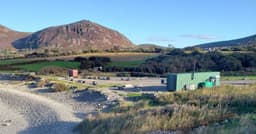Home / Environment / Coastal Controversy: Locals Raise Concerns Over Planned Wetland Restoration in Cuckmere Valley
Coastal Controversy: Locals Raise Concerns Over Planned Wetland Restoration in Cuckmere Valley
5 Nov, 2025
Summary
- National Trust proposes creating breaches in Chyngton Brook to restore 42 hectares of salt marshes and mud flats
- Locals worry about increased flooding upstream due to the project
- Concerns over two well-used paths becoming inaccessible

As of November 5th, 2025, the National Trust's proposal to restore 42 hectares of salt marshes and mud flats in the Cuckmere Valley has faced pushback from some local residents. The plan involves creating five breaches in Chyngton Brook to allow fields to flood, with the aim of improving biodiversity and river flow.
However, villages further upstream have long dealt with flooding issues due to shingle and mud collecting at the mouth of the Cuckmere River. Some locals are concerned the National Trust's project could exacerbate these problems by altering the river's flow. Nick Giles, vice chair of Cuckmere Valley Parish Council, stated that there is "a lot of local concern" as the proposal is "a bit of an experiment" with uncertain consequences.
The National Trust maintains that its modeling shows the project will actually lower water levels upstream and improve how water flows out to sea. They argue that the salt marsh and mud flat habitats being restored are rare and disappearing, and that the change will ultimately benefit both people and wildlife. However, the plan will also result in the permanent closure of one path and the seasonal flooding of another, which has drawn criticism from local groups.
As the consultation on the plans remains open until November 26th, 2025, the debate over the Cuckmere Valley's future continues to unfold.




